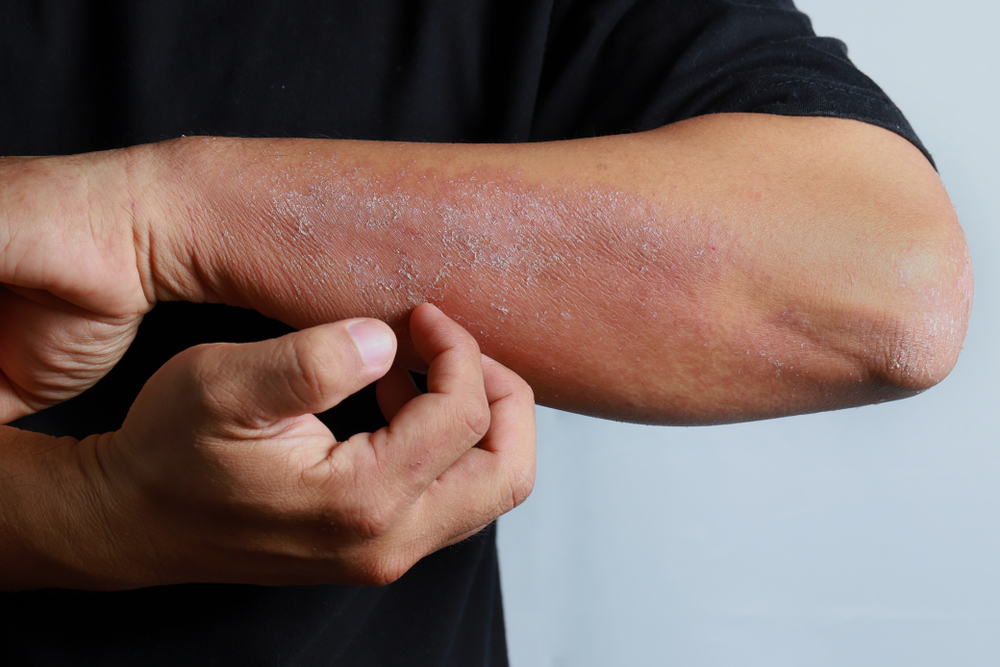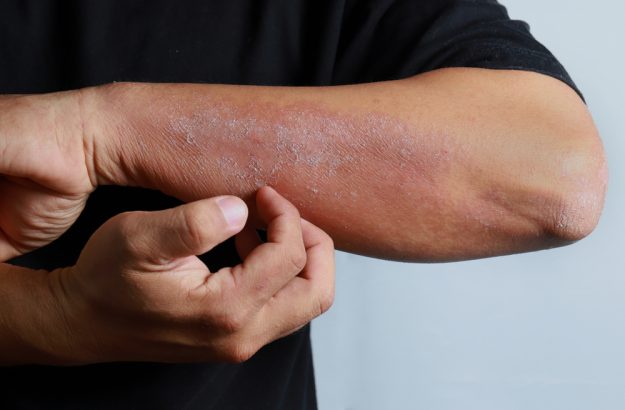
Eczema, also known as Atopic Dermatitis, is known as the “itch that rashes.” Between 10-20 percent of people in the world are affected and, in most cases, it begins to appear very early in life.
In young children, atopic dermatitis presents with itchy, red, scaling patches on the scalp and on the cheeks. By adolescence, eczema tends to move to the inner arms and the back of the knees, but can also affect other areas of the body. In adulthood, atopic dermatitis looks like dry, thickened, scaly skin.
While the cause of atopic dermatitis is not known, several factors are known to trigger or make it worse. In some children, for example, flares of eczema can occur after ingestion of specific foods.
Other possible triggers include irritating soaps or detergents, wool clothing, jewelry and perfume. Atopic dermatitis tends to occur in people who are also prone to asthma and hay fever.
Patients with atopic dermatitis should adhere to the following “gentle skincare” guidelines:
- Showering should be less than 10 minutes long only once daily with lukewarm water.
- Soap used in the shower should be mild and fragrance free..
- After showering, pat dry and apply a mild, fragrance free moisturizer (either cream or ointment) to damp skin – the so-called “soak and smear.”
- Use a hypoallergenic detergent to wash clothing, sheets and towels and avoid fabric softener.
- Stay away from wool, perfume and body sprays.
- Use a humidifier during dry, winter months.
Treatment of atopic dermatitis in New York usually begins with topical corticosteroids.
Antihistamines may be used to decrease itch and enhance sleep, while antibiotics may be utilized if an infection is present. Allergy testing may be a consideration in patients who also suffer from asthma or hay fever.
For severe cases of atopic dermatitis, phototherapy might be recommended.
To learn more about treatments for Eczema in New York, click here to scheduled an appointment or call our office at (212) 674-0004.
